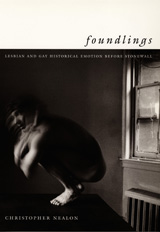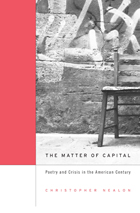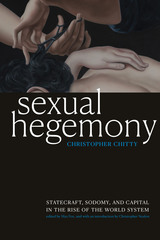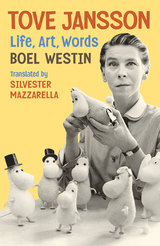
The young runaways in Cather’s novels, the way critics conflated Crane’s homosexual body with his verse, the suggestive poses and utopian captions of muscle magazines, and Beebo Brinker, the aging butch heroine from Ann Bannon’s pulp novels—all embody for Nealon the uncertain space between two models of lesbian and gay sexuality. The “inversion” model dominant in the first half of the century held that homosexuals are souls of one gender trapped in the body of another, while the more contemporary “ethnic” model refers to the existence of a distinct and collective culture among gay men and lesbians. Nealon’s unique readings, however, reveal a constant movement between these two discursive poles, and not, as is widely theorized, a linear progress from one to the other.
This startlingly original study will interest those working on gay and lesbian studies, American literature and culture, and twentieth-century history.

In this highly original reexamination of North American poetry in English from Ezra Pound to the present day, Christopher Nealon demonstrates that the most vital writing of the period is deeply concerned with capitalism. This focus is not exclusive to the work of left-wing poets: the problem of capitalism’s effect on individuals, communities, and cultures is central to a wide variety of poetry, across a range of political and aesthetic orientations. Indeed, Nealon asserts, capitalism is the material out of which poetry in English has been created over the last century.
Much as poets of previous ages continually examined topics such as the deeds of King Arthur or the history of Troy, poets as diverse as Jack Spicer, John Ashbery, and Claudia Rankine have taken as their “matter” the dynamics and impact of capitalism—not least its tendency to generate economic and political turmoil. Nealon argues persuasively that poets’ attention to the matter of capital has created a corresponding notion of poetry as a kind of textual matter, capable of dispersal, retrieval, and disguise in times of crisis. Offering fresh readings of canonical poets from W. H. Auden to Adrienne Rich, as well as interpretations of younger writers like Kevin Davies, The Matter of Capital reorients our understanding of the central poetic project of the last century.

READERS
Browse our collection.
PUBLISHERS
See BiblioVault's publisher services.
STUDENT SERVICES
Files for college accessibility offices.
UChicago Accessibility Resources
home | accessibility | search | about | contact us
BiblioVault ® 2001 - 2024
The University of Chicago Press









